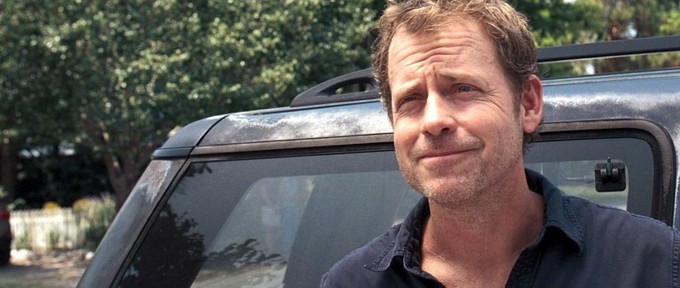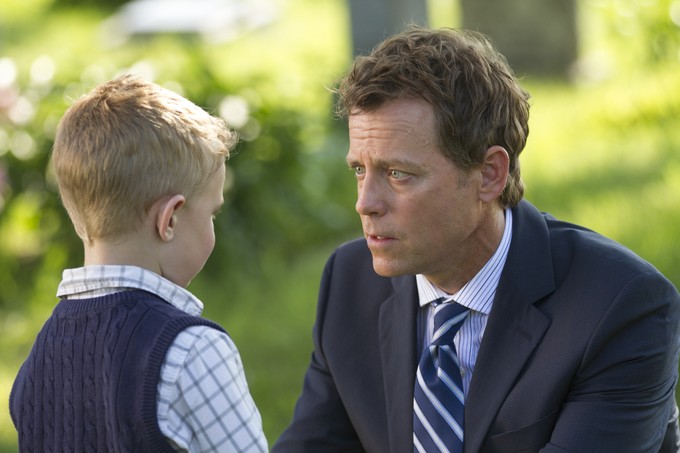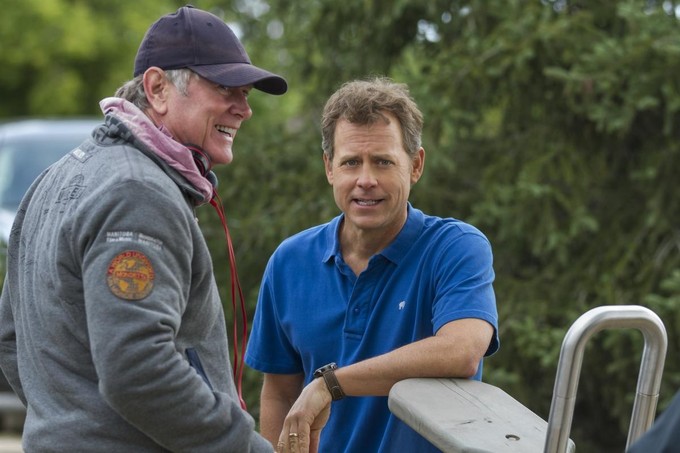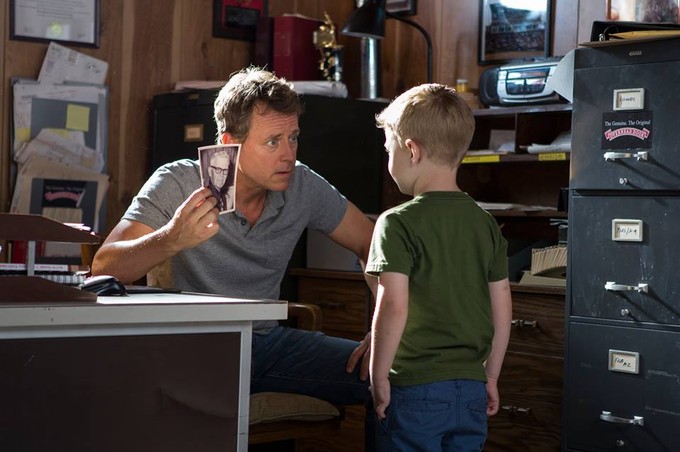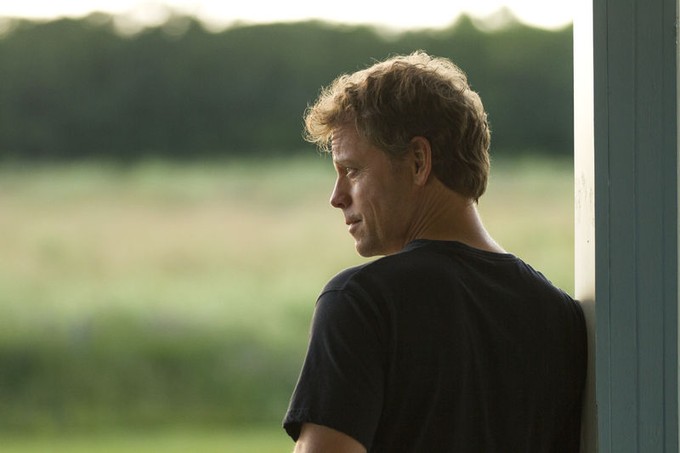Ain't It Cool News (www.aintitcool.com)
Movie News
Capone must be talking to an angel in the form of Greg Kinnear, star of HEAVEN IS FOR REAL!!!
Hey everyone. Capone in Chicago here.
GK: Yes, he had us all fill out a three-page document, I believe, with a number two pencil, and we all passed. [laughs] No, he didn’t. That just wasn’t the criteria for him. If anything, I think Randy’s interest in the movie, he didn’t wanna get caught up in the dogma of it all and be a message film. I don’t think his interest was in making the audience think or believe one way or the other about heaven or no heaven.
Capone: I didn’t realize Randall had directed this until I saw it in the credits. His films, typically the ones he’s directed and written, are on a much bigger in scale. Were you at all curious why he would pick something this small and intimate to settle in on?
Readers Talkback

